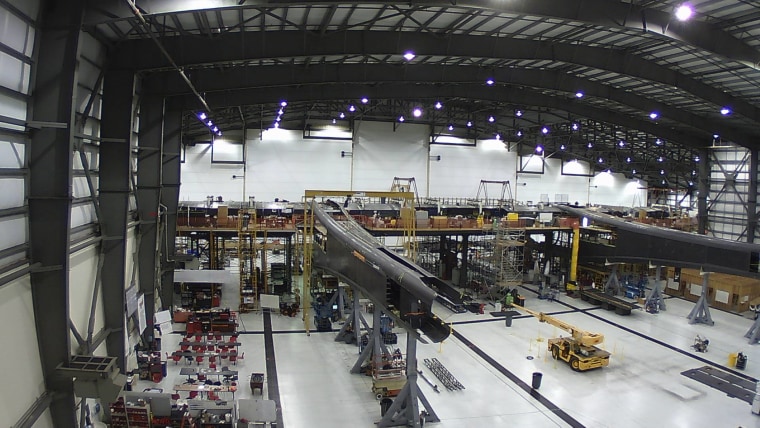Falcon vs. Vulcan? United Launch Alliance turned to a "Star Trek" favorite, Vulcan, to name its next-generation rocket, which is due for its maiden launch in 2019 with a new breed of U.S.-made engine. The Vulcan is being positioned as the main U.S. rival for SpaceX's Falcon line of rockets.
ULA went with the top choice from an online poll to name what was previously known as the Next Generation Launch System. "As the company currently responsible for more than 70 percent of the nation's space launches, it is only fitting that America got to name the country's rocket of the future," Tory Bruno, ULA's president and CEO, said Monday in a news release.
Vulcan joins the Atlas and Delta lines of rockets that are offered by ULA, a joint venture involving the Boeing Co. and Lockheed Martin.
During Monday's big reveal at the National Space Symposium in Colorado Springs, Bruno also unveiled an plan to recover the Vulcan's first-stage booster engines by using a helicopter to capture the heat-shielded, parachute-equipped engine package in midair as it descends. The initiative is called Sensible, Modular, Autonomous Return Technology, or SMART.
"This will take up to 90 percent of the propulsion cost out of the booster," Bruno told The Denver Post.
SpaceX is working on a different approach to rocket reusability, which involves having the Falcon 9 rocket's first stage fly itself back to a landing pad. SpaceX has been working on that technology for years, and it's due for another test as early as Tuesday during the launch of a Dragon cargo capsule to the International Space Station.
Rocket reusability is regarded as a key strategy for reducing the cost of access to space.
The Vulcan rocket's first stage would use BE-4 engines developed in cooperation with Blue Origin, the rocket venture founded by Amazon.com billionaire Jeff Bezos. ULA said the BE-4 would serve as a "viable alternative to the Russian-made RD-180." Members of Congress have pressed the Pentagon and ULA to phase out the RD-180s, which are currently used on Atlas 5 rockets for national security launches.
Early flights would use ULA's Centaur upper stage, but the company said the Centaur eventually would be replaced by the more powerful Advanced Cryogenic Evolved Stage, or ACES.

Update for 8:30 p.m. ET April 13: Strangely enough, ULA's rocket wasn't the only Vulcan in the spotlight at the Space Symposium. Software billionaire Paul Allen's Vulcan Inc. took the wraps off Vulcan Aerospace, a newly created "NextSpace" corporate entity that encompasses Stratolaunch Systems and Allen's other space ventures.
Chuck Beames, the president of Vulcan Aerospace Corp. and executive director of Stratolaunch Systems, addressed the Vulcan vs. Vulcan branding issue in a statement messaged to NBC News:
"Vulcan is a trademark of Vulcan Inc., and we have informed ULA of our trademark rights. Paul Allen and Vulcan were early leaders within space exploration with the launch of SpaceShipOne more than a decade ago. We are flattered by ULA’s tribute to our legacy by naming their new rocket 'Vulcan.'"

